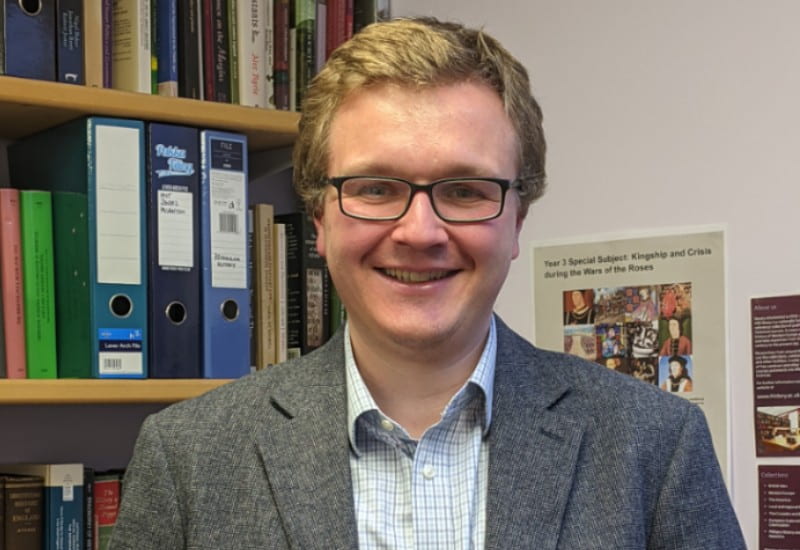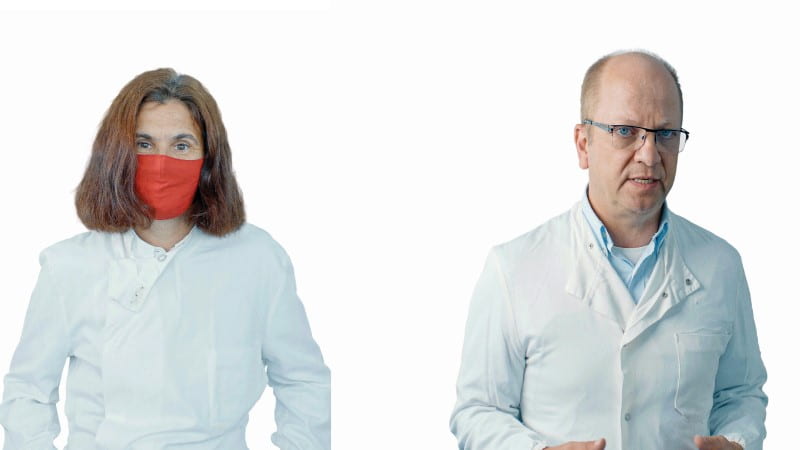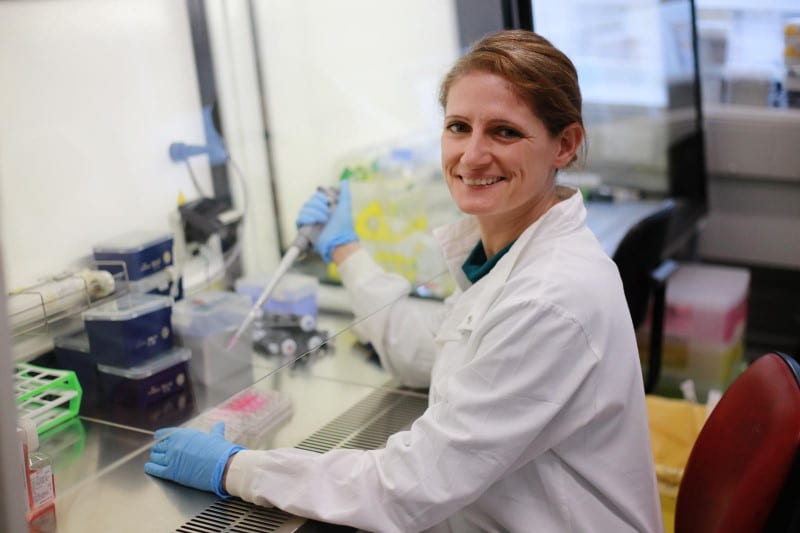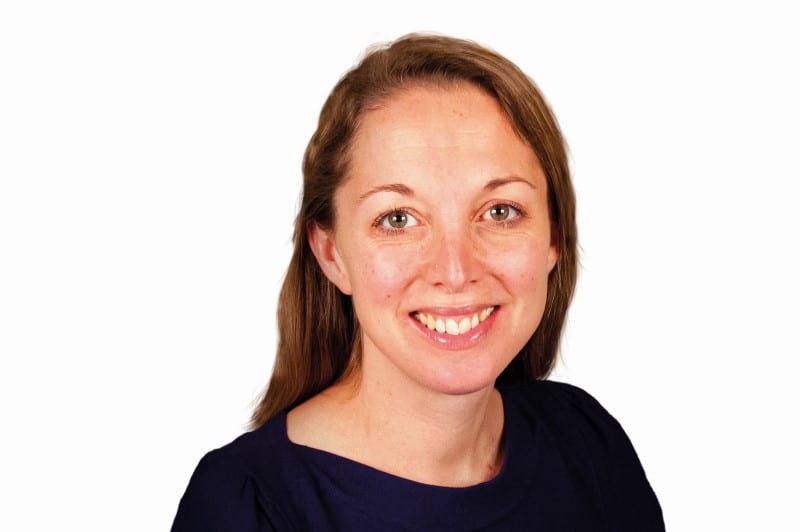As we look back on the maelstrom of 2020 and the continued impact of COVID-19, I hope you will take some solace in the way in which your University has been weathering this storm and continuing to be excellent in all its endeavours.
Category: Nonesuch magazine 2021
A Bristol life: Dr John Reeks (MA 2010, PhD 2015)
For over 12 years Dr John Reeks has been a part of the University of Bristol: first as an MA student, then as a PhD researcher and now as a lecturer in the Department of History. Here he tells us more about what makes the University such a special place for him.
The view from here: Hillary Gyebi-Ababio (BSc 2019)
Hillary Gyebi-Ababio (BSc 2019) was elected Vice-President (Higher Education) for the National Union of Students last summer. She is the former Undergraduate Education Officer for the University of Bristol’s Students’ Union and a passionate advocate for education. Here, Hillary reflects on how students have been impacted by the COVID-19 pandemic and the resurgence of the Black Lives Matter movement, and how the national student body are responding to these major global issues.
Owning our Digital Destinies – a look at the University’s Bristol Digital Futures Institute

Researchers, businesses, government and diverse communities must come together to proactively shape our digital future, say Professors Susan Halford and Dimitra Simeonidou, Co-Directors of the University’s Bristol Digital Futures Institute (BDFI).
The BDFI is led by Professor Susan Halford (School of Sociology, Politics and International Studies) and Professor Dimitra Simeonidou (Department of Electrical and Electronic Engineering). For the past decade Professor Halford’s work has focused on the interface between social and computational sciences, while Professor Simeonidou specialises in high-performance networks and future internet research. This complementary expertise feeds into the BDFI, which aims to transform the way we create, utilise and evaluate new digital technologies to benefit our society now and in the future. (more…)
Spotlight on COVID-19 research: Professors Imre Berger and Christiane Schaffitzel
COVID-19: Discovery of a druggable pocket in the SARS-CoV-2 spike protein
When husband-and-wife dynamic duo Professors Imre Berger (Max Planck-Bristol Centre for Minimal Biology) and Christiane Schaffitzel (School of Biochemistry) found themselves in lockdown in March 2020, unable to teach or run their normal workday at the University of Bristol, they did not hang up their lab coats. Instead (while complying with all necessary safety measures) they assembled a cohort of volunteers from their teams and set to work to do what they could to stop COVID-19 in its tracks, as part of the bigger Bristol University COVID-19 Emergency Research Group (UNCOVER). (more…)
Spotlight on COVID-19 research: Professor Jonathan P Reid

COVID-19: Looking at different ways in which aerosol research can support the fight against COVID-19
As Director of the EPSRC Centre for Doctoral Training in Aerosol Science and the Bristol Aerosol Research Centre, Professor Jonathan Reid’s approach to tackling COVID-19 is, naturally, focused on aerosols. ‘Aerosols’ is a term that is used to refer to a collection of particles that are airborne and with sizes typically smaller than the diameter of a human hair. When we speak, breathe, cough or even sing, we generate hundreds of these particles that someone else could breathe in, transmitting the virus responsible for COVID-19.
A key piece of work from Professor Reid has shown that there is significantly less risk of COVID-19 transmission from anaesthesia procedures than was previously thought. This is an important finding at a time when many operations and NHS procedures have been postponed or cancelled, causing problems for patients in the UK.
Since the outset of the COVID-19 pandemic, there has been much debate about the danger to hospital staff from anaesthetic procedures. Concerns include that inserting a tube in the patient’s airway (intubation) before surgery or removing it at the end (extubation) may produce a fine mist of small aerosol particles and spread the COVID-19 virus to nearby staff.
Spotlight on COVID-19 Research: Dr Laura Rivino
COVID-19: Immune correlates of hyperinflammation and protective immunity in COVID-19
As we grapple with the nightmare scenario of a global pandemic, scientists around the world, including at Bristol, are diving into research around as many aspects of the COVID-19 virus as possible. One of the key findings to date is that in serious cases the body’s immune system goes into ‘overdrive’. Evidence accumulated so far suggests that the life-threatening COVID-19 complications are related to immune dysregulation, arising because of viral infection in the form of a hyperinflammatory syndrome accompanied by increased plasma levels of pro-inflammatory cytokines.(1-2)
Immunologist Dr Laura Rivino is conducting a pilot study that should provide us with a clearer understanding of the immune response underlying both the immunopathology and immune protection in patients with COVID-19. Her team’s hypothesis is that it would be beneficial to use a combination of strategies where the anti-inflammatory response can be blocked while simultaneously boosting the anti-viral immune response, with an expectation of ensuring viral clearance and establishment of immunological memory.
Spotlight on COVID-19 Research: Dr Saffron Karlsen
COVID-19: Black lives in lockdown – the pandemic experiences of people with Black, Asian and minority ethnicities living in the South West
For many people, the reports that COVID-19 was disproportionately affecting those in Black, Asian and minority ethnic communities was news to them. For Dr Saffron Karlsen, however, it was not. As Associate Professor in Sociology and a specialist in inequalities in health research, Dr Karlsen has spent over 20 years looking at how structural and societal inequalities hamper health and healthcare for those in ethnic minority groups. (more…)
Inside the BBC Natural History Unit with Creative Director, Mike Gunton
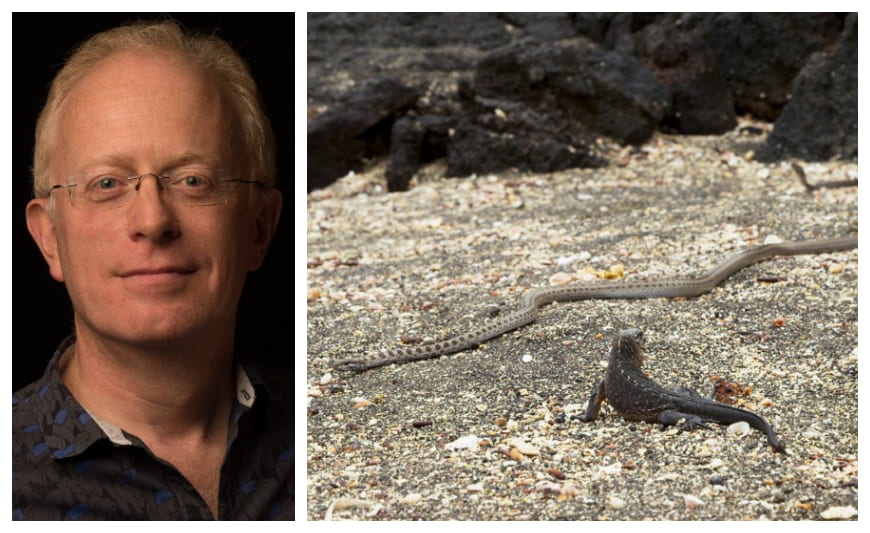
In 2016, millions of people up and down the UK gathered in their living rooms, biting their nails and peeping through their fingers as a newly hatched iguana fled from a swarm of snakes – narrowly escaping with its life. The iconic scene from Planet Earth II went viral worldwide and continued on to win the ‘Must-See Moment’ BAFTA award a year later. It’s a sequence that Mike Gunton (BSc 1979), Creative Director of BBC Studios Natural History Unit, has watched hundreds of times, both in the editing room and during the talks he’s given on the Natural History Unit in recent years.
‘I still love it every time I see it,’ says Mike, ‘especially the reaction it gets. It’s an extraordinary combination of brilliant camerawork and brilliant editing. That’s a once-in-a-generation kind of sequence to be honest.’
Eco-entrepreneur: we speak with Alumna Rhea Singhal (BSc 2004), Founder and CEO of Ecoware
Rhea Singhal, Founder and CEO of Ecoware – India’s first and largest sustainable food packaging company – tells us about her move from Pharmacology to environmentally friendly tableware, what she learned from her time at Bristol, and how to confidently follow your passion.
I fell in love with Bristol on my open day at the University. The city had such a nice feel to it, not too large but big enough to be interesting. It was easy to navigate as a student and I always felt at home, which was particularly important, as I was an international student. I made a great bunch of friends at Bristol that I’m still in touch with today.
I had wanted to be a medical doctor since I was very little, but when it came to actually attending university I wavered, and I wasn’t so sure. So instead I chose to study Pharmacology. But I found the degree to be very research based and I personally didn’t like that, I wanted more face-to-face interaction. It was very hard, but I also knew that nothing lasts forever. I was also lucky in that the faculty were always super supportive and honestly felt like family. And I loved all of the societies and extracurriculars that I was part of. (more…)


